St. Edmund, faithful king and martyr, You gave your life for Christ in courage and love. Pray for us to stand firm in faith And trust in God’s divine will. Amen.
ST. KING EDMUND (MARTYR)
ST. KING EDMUND (MARTYR)
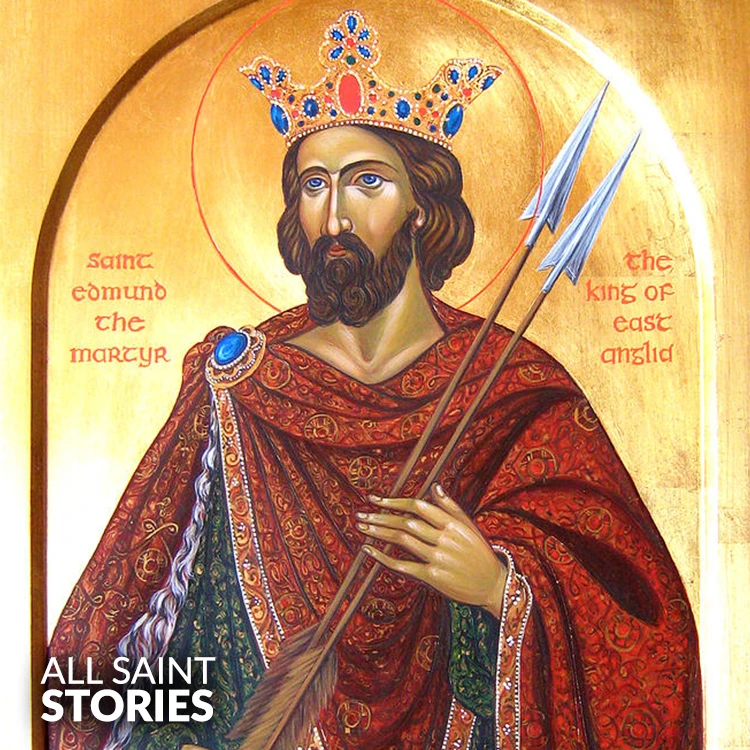
St. King Edmund, the Martyr, was the King of East Anglia during the 9th century. Known for his deep Christian faith, Edmund was captured by Viking invaders and, refusing to renounce his beliefs, was tortured and killed. His martyrdom and the miracles attributed to him led to his veneration, and his feast day is celebrated on November 20th. He is the patron saint of East Anglia and a symbol of faith and resilience in the face of persecution.
St. King Edmund, also known as St. Edmund the Martyr, was born around 841 in East Anglia, a region in modern-day England. He was the son of Ælfstan, a nobleman, and Wulfrun, who was connected to the royal family of Mercia. As a young man, Edmund ascended to the throne of East Anglia after the death of his father. His reign came during a turbulent period, marked by Viking invasions that threatened the stability of the kingdom.
Edmund was known for his strong Christian faith and leadership. He sought to defend his kingdom from the growing Viking threat, but in 869, East Anglia was invaded by the Danish Vikings under the leadership of Ivar the Boneless. The Viking forces captured Edmund and offered him a choice: renounce his Christian faith and embrace paganism or face death. Edmund, steadfast in his devotion to Christ, refused to abandon his beliefs. As a result, he was subjected to brutal torture.
The Vikings tied Edmund to a tree and shot him with arrows, but he remained steadfast, refusing to renounce his faith even in the face of such suffering. After he was shot, the Vikings beheaded him. According to some accounts, his head was thrown far from his body, but a wolf is said to have guarded the head until Edmund’s followers recovered it and buried it with his body.
Following his martyrdom, Edmund's reputation as a holy and courageous ruler spread rapidly, and many miracles were attributed to his intercession. His tomb in Bury St Edmunds became a popular pilgrimage site, and his cult grew throughout England. He was venerated as a saint due to his firm witness to the Christian faith in the face of violence and persecution. Though he was never formally canonized, the Catholic, Orthodox, and Anglican churches all recognized him as a saint due to his martyrdom and piety.
St. Edmund’s feast day is celebrated on November 20th, the day of his death. He is often depicted as a king holding arrows, which represent the manner of his martyrdom. In some images, a wolf appears, symbolizing the miracle of his head being guarded. St. Edmund is the patron saint of East Anglia, and his legacy endures as a symbol of courage, faith, and resilience.
In the centuries after his death, numerous places in England, including the town of Bury St Edmunds, became associated with his memory. The town’s abbey was an important religious site for centuries, attracting pilgrims from all over. Although the abbey is now in ruins, it stands as a testament to Edmund’s enduring legacy.
St. Edmund’s story is one of courage in the face of adversity, and his martyrdom continues to inspire Christians to remain steadfast in their faith, even when faced with persecution. His life and death have left an indelible mark on English history and Christianity, and he remains a beloved figure in the spiritual and historical heritage of East Anglia and beyond.
Video Not Found
The information on this website is compiled from various trusted sources. While we aim for accuracy, some details may be incomplete or contain discrepancies.
If you notice any errors or have additional information about this saint, please use the form on the left to share your suggestions. Your input helps us improve and maintain reliable content for everyone.
All submissions are reviewed carefully, and your personal details will remain confidential. Thank you for contributing to the accuracy and value of this resource.
Credits & Acknowledgments
- Anudina Visudhar (Malayalam) – Life of Saints for Everyday
by Msgr. Thomas Moothedan, M.A., D.D. - Saint Companions for Each Day
by A. J. M. Mausolfe & J. K. Mausolfe - US Catholic (Faith in Real Life) – Informational articles
- Wikipedia – General reference content and images
- Anastpaul.com – Saint images and reflections
- Pravachaka Sabdam (Malayalam) – Saint-related content and insights
We sincerely thank these authors and platforms for their valuable contributions. If we have unintentionally missed any attribution, please notify us, and we will make the correction promptly.
If you have any suggestion about ST. KING EDMUND (MARTYR)
Your suggestion will help improve the information about this saint. Your details will not be disclosed anywhere.
© 2026 Copyright @ www.allsaintstories.com

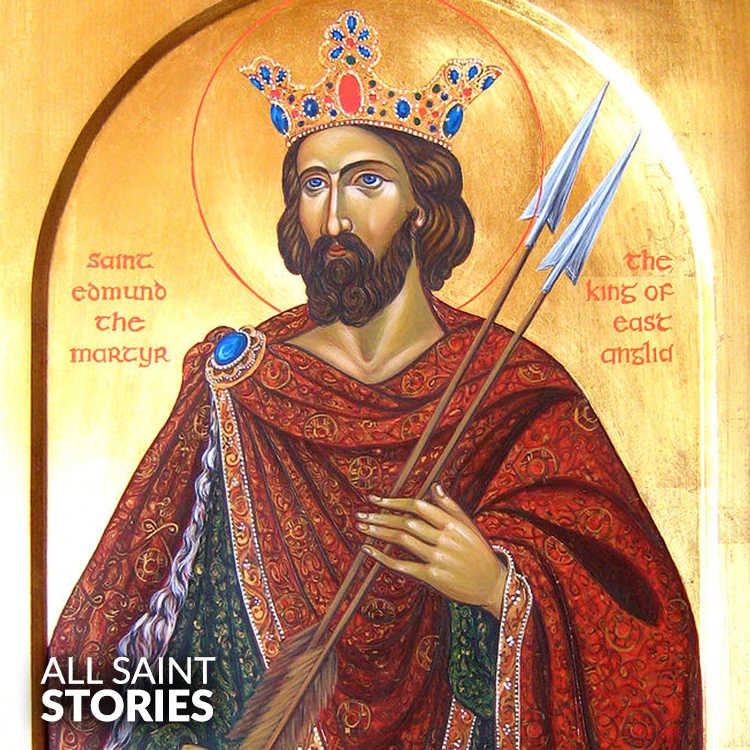
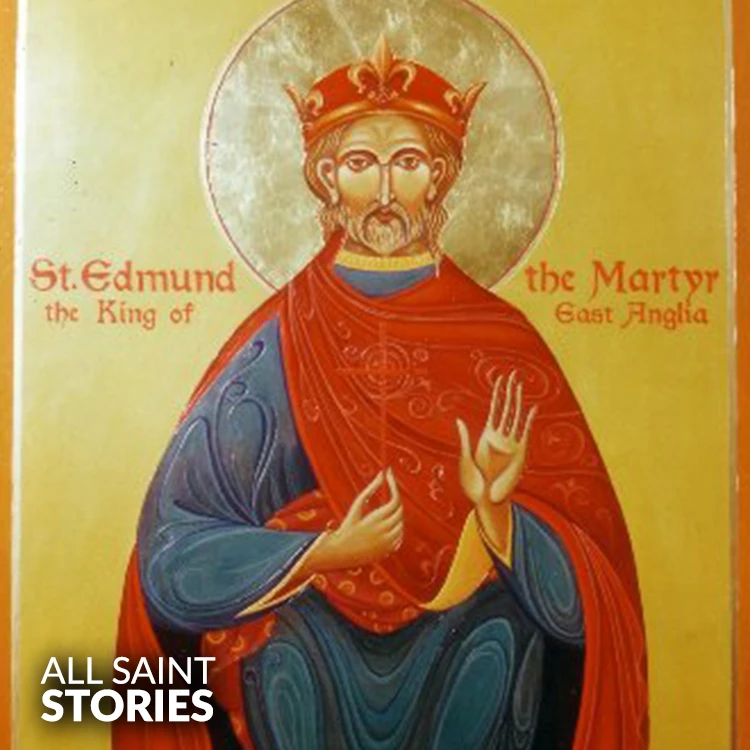
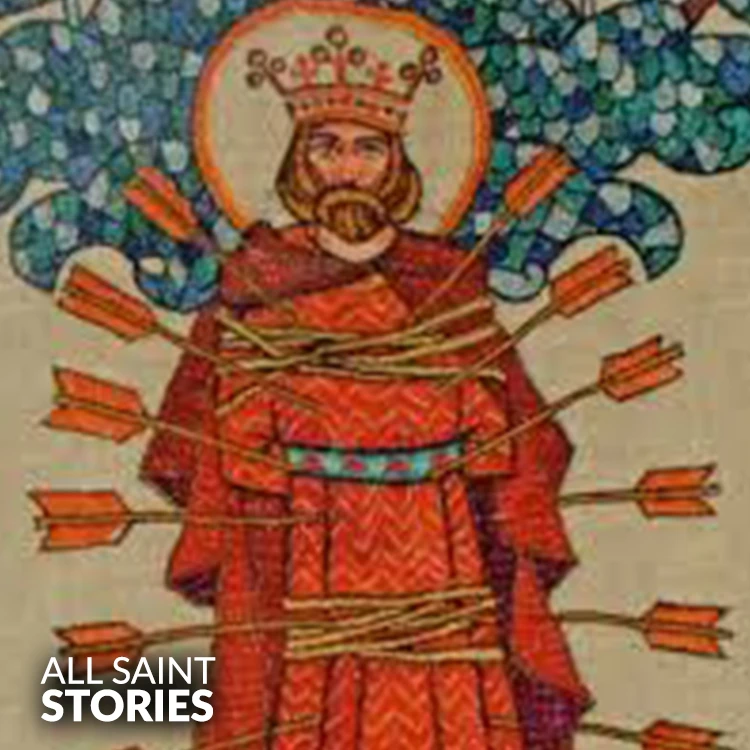
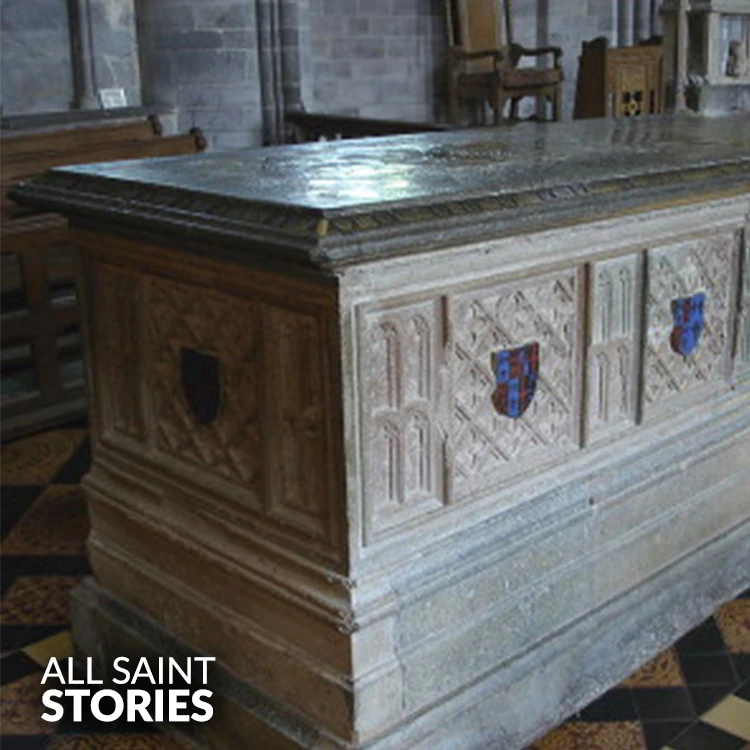

 English
English
 Italian
Italian
 French
French
 Spanish
Spanish
 Malayalam
Malayalam
 Russian
Russian
 Korean
Korean
 Sinhala
Sinhala
 Japanese
Japanese
 Arabic
Arabic
 Portuguese
Portuguese
 Bantu
Bantu
 Greek
Greek
 German
German
 Dutch
Dutch
 Filipino
Filipino